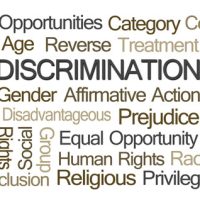As of January 1, 2025, Local Agencies Have the Right to Play a More Active Role in Workplace Discrimination Cases in California

On September 26, 2024, California Governor Gavin Newsom signed Senate Bill (SB) 1340 into law. The legislative reform—officially taking effect starting on January 1, 2025—will empower municipal and local government agencies to play a more active role in enforcing the California Fair Employment and Housing Act (FEHA). Here, our California employment lawyer provides an overview of SB 1340 and how it enhances collaboration between state and local authorities in workplace discrimination cases.
FEHA Prohibits Workplace Discrimination in California
The Fair Employment and Housing Act (FEHA) strictly prohibits employers in California from discriminating against employees based on protected characteristics such as race, gender, age, or disability. Employers found in violation of FEHA can face serious liability.
SB 1340 Empowers Cities, Counties, and Other Local Government Agencies
SB 1340 will expand the enforcement of workplace discrimination laws to local government entities. Why does this matter? Under the current law, the California Civil Rights Department (CRD) is the primary authority handling FEHA discrimination claims. However, once SB 1340 takes effect, local entities such as cities, counties, and their agencies will also have the power to enforce these laws against employers as long as their local ordinances are as protective as or more protective than state law.
For employers, SB 1340 could bring some changes that will vary based on an employer’s specific municipality. Some local governments may engage in more aggressive enforcement of workplace discrimination claims. Other local governments may leave the matter largely to the CRD. Still, with SB 1340 in effect, there is potential for increased scrutiny and enforcement driven at the local level. Employers can prepare by ensuring that they have the proper anti-discrimination policies in place and train their employees and supervisors on the best practices to avoid discrimination in the workplace.
Key Limitation: Local Enforcement Only After Right-to-Sue Notice
While employers should prepare for this new law, employers need to be aware of the limitations of SB 1340. The law does not allow local governments to take the immediate lead on employee workplace discrimination complaints made within their jurisdiction. Indeed, one significant limitation of SB 1340 is that local enforcement can only commence action after the California Civil Rights Department (CRD) has issued a right-to-sue notice.
A right-to-sue notice grants an employee the authority to file a lawsuit in court against their employer for discrimination claims. This notice is typically issued after a preliminary review of the complaint and indicates that the CRD will not take further action. The employee can then sue the employer. With SB 1340 in place, a local government could also step in and take action.
Consult With Our Employment Lawyer in California Today
At Sloat Law Group, APC, our California employment law attorney helps employers find solutions. If you have any specific questions or concerns about a workplace discrimination matter, we are here to help. Contact our employment law firm today for a confidential consultation. From our office in Riverside County, we represent employers throughout the State of California.
Source:
leginfo.legislature.ca.gov/faces/billTextClient.xhtml?bill_id=202320240SB1340
